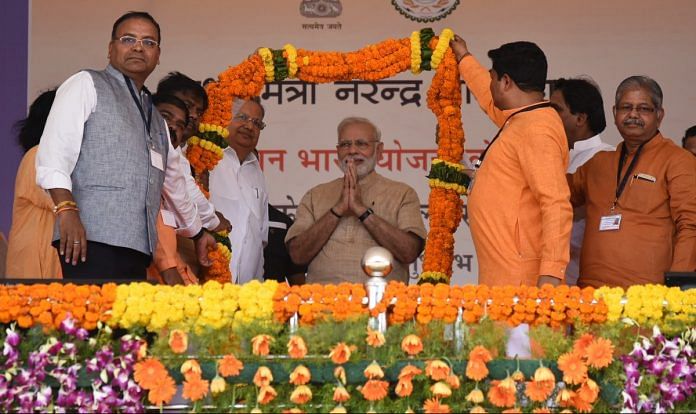Modi government tells HC it will re-frame policy as it has realised health is a state subject and it hadn’t sought approval of states.
New Delhi: The Modi government appears to have goofed up in formulating its policy for the treatment of rare diseases – conditions that are mostly incurable and life-threatening – and has decided to re-frame it.
The policy had been approved in May last year and announced this February by health minister J.P. Nadda.
The goof-up came to light during a hearing in the Delhi High Court, which was adjudicating on a plea filed by some patients — when the government informed the court that it had realised that health is a state subject and that concurrence of most the states had not been obtained before framing the National Policy for Treatment of Rare Diseases.
It also told the court — during the hearing on 30 November — that it had handed over the responsibility of the policy to the National Health Mission (NHM) before realising that such diseases fall under tertiary healthcare, requiring specialists in large hospitals, whereas the mandate for the NHM is only for primary and secondary healthcare.
The government, in a detailed presentation submitted by Manohar Agnani, joint secretary in the ministry of health and family welfare, agreed that it has not allocated any of the Rs 100 crore that it promised as the initial corpus under the policy for the treatment of about 70 million affected patients.
This despite the government having filed an affidavit, dated 5 December 2017, in which it claimed that it had set up an initial corpus of Rs 100 crore towards the funding of rare genetic diseases.
The government’s “flip-flop” earned it the censure of the Delhi High Court, which while setting the next date of hearing on 17 December, slammed it for the delay.
“This court is of the prima facie view that the somersault by the officials of the Ministry of Health and Family Welfare, Government of India, does not reflect well on the decision-making process in the Ministry,” the court said in its order.
“In the prima facie opinion of this court, the flip-flop in the decision-making process can prove to be very costly in as much as one of the patients whose case was directed to be processed by this court vide order dated 02nd February 2018, has unfortunately expired during the pendency of the present proceedings.”
Also read: Modi govt’s ambitious TB eradication scheme is stuck because it can’t locate patients
‘Policy needs changes’
A senior government official said major changes were needed in the policy.
“There are major gaps in the existing policy that need revision,” Manoj Jhalani, additional secretary, Ministry of Health and Family Welfare, told ThePrint. “There is a need to define rare diseases and include criteria for the eligibility of patients for the receipt of funds as our resources are finite.”
The government has now decided to re-frame the policy by appointing an expert committee, Jhalani said, adding that it plans to limit the scope of the policy by setting clear eligibility criteria. He also said that ‘the policy is likely to get the approval of standing finance committee within one week’ without disclosing the corpus.
“Our resources are limited and before releasing funds for treatment we must understand if the cost would lead to any health benefit or not,” Jhalani said.
“For instance, by conducting an immunisation drive, health problems of a larger number of people can be addressed by allocating a relatively smaller amount. However, financing treatments for rare diseases would take greater resources for a relatively smaller number of persons.”
Even as the government re-frames the policy, six states, including Delhi, have already constituted committees in accordance with the earlier policy.
Also read: Months after Modicare launch, 74% of specialist doctor posts found vacant in rural India
The policy
Union minister J.P. Nadda had in February announced the formulation of the policy while marking the ‘World Rare Disease Day’. It was to address diseases that affect a very small number of people but are chronic, life-threatening and in many cases result in some kind of hindrance to living a normal life.
There are around 8,000 rare diseases across the globe, of which 450 have been reported in India. They include haemophilia, thalassemia, sickle-cell anaemia and lysosomal storage disorders such as Pompe disease, Gaucher’s disease, and spinal muscular dystrophies.
The government first claimed to have formulated the policy following orders by the Delhi High Court on 3 November 2016, when the court gave it six months to formulate the policy.
The government had filed an affidavit in the high court on 25 May 2017, submitting a copy of the national policy.
“That in compliance of the order dated 3 November 2016, The National Policy on Treatment of Rare Diseases has been formulated and the Draft Policy has been approved by the Ministry of Health and Family Welfare,” the affidavit submitted by the government had said.




Delay in policy and messing up the policy is worst then mercy killing. We already lost some kids with rare disease. Either policy has be approved or mercy killing has be approve for rare disease.